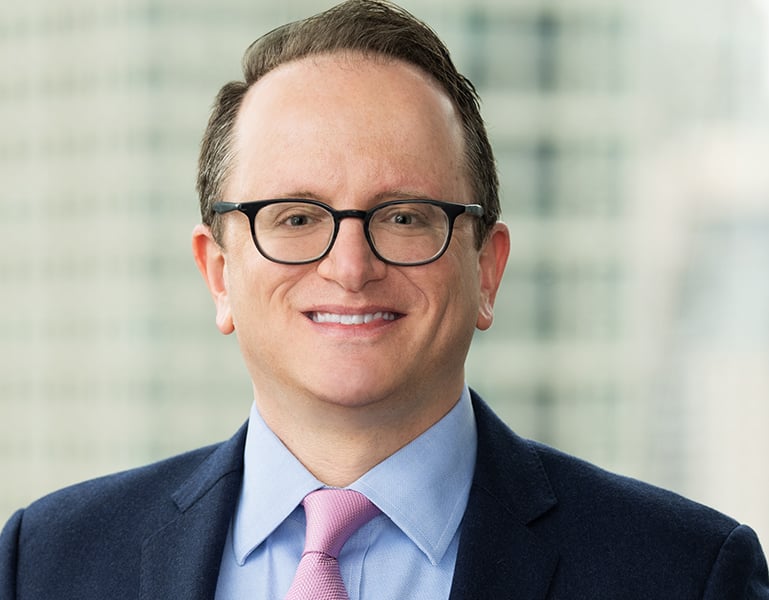SEC Proposes Expanding Access to Private Funds
On December 18, 2019, the SEC issued proposed amendments to broaden the definition of “accredited investor” under Regulation D of the Securities Act of 1933. The proposal would add new categories of qualifying natural persons and entities and make certain other modifications to the existing definition that would expand the pool of eligible investors for private funds based on, among other things, the SEC’s view that wealth should not be the sole means of establishing financial sophistication and demonstrating the requisite ability to assess an investment opportunity.
Key aspects of the proposal are as follows:
- New Categories of Natural Persons Who Would Qualify as Accredited Investors. One new category would include holders of professional certifications and designations that demonstrate an individual’s background and understanding in the areas of securities and investing, including a Series 7, 65 or 82 license. Another new category would include “knowledgeable employees” of private funds, which generally would include the private fund’s executive officers, directors, general partners, advisory board members and employees (other than those performing solely clerical, secretarial or administrative functions).
- Clarification of “Joint Net Worth” and Addition of Spousal Equivalents. The proposed amendments would add the term “spousal equivalent”—a cohabitant occupying a relationship generally equivalent to that of a spouse—to the accredited investor definition for use in calculating joint income and would include spousal equivalents when determining net worth so that both spouses and spousal equivalents may pool their finances for the purpose of qualifying as accredited investors. An individual currently qualifies as an accredited investor if, among other things, the individual: (1) has, individually or jointly with such investor’s spouse, a net worth exceeding $1 million (excluding the value of the individual’s primary residence); and (2) had income in excess of $200,000, or joint income with that person’s spouse in excess of $300,000, in each of the two most recent years, and has a reasonable expectation of reaching the same income level in the current year. The SEC’s proposal retains the current net worth and income thresholds.
- New Categories of Entities That Would Qualify as Accredited Investors. These would include registered investment advisers; limited liability companies with total assets exceeding $5 million; rural business investment companies; family offices with more than $5 million in assets under management whose investments are directed by a person who has knowledge and experience in financial and business matters that the family office is capable of evaluating the merits and risks of the prospective investment; any “family client” as defined under the Investment Advisers Act of 1940; and various other entities, including Native American tribes, labor unions, governmental bodies and funds, and foreign entities, that own investments in excess of $5 million and that are not formed for the specific purpose of acquiring the securities being offered.
- Clarification of the Ownership Look-Through. Currently under Regulation D, an entity qualifies as an accredited investor if all of the equity owners of that entity are accredited investors. Because an equity owner of an entity may itself be an entity, the proposed amendments would clarify that, in determining accredited investor status, one may look through various forms of equity ownership to the natural person that owns the entity.
- Conforming Amendments to Rule 144A and “Qualified Institutional Buyer” (QIB) Status. The proposal would amend the QIB definition to permit certain institutional accredited investors to automatically qualify as QIBs when they satisfy the dollar-amount threshold—i.e., owning and investing on a discretionary basis an aggregate of at least $100 million.
Comments on the proposal are due by March 16, 2020.
The SEC’s proposing release is available here.
Vedder Thinking | Articles SEC Proposes Expanding Access to Private Funds
Article
January 29, 2020
On December 18, 2019, the SEC issued proposed amendments to broaden the definition of “accredited investor” under Regulation D of the Securities Act of 1933. The proposal would add new categories of qualifying natural persons and entities and make certain other modifications to the existing definition that would expand the pool of eligible investors for private funds based on, among other things, the SEC’s view that wealth should not be the sole means of establishing financial sophistication and demonstrating the requisite ability to assess an investment opportunity.
Key aspects of the proposal are as follows:
- New Categories of Natural Persons Who Would Qualify as Accredited Investors. One new category would include holders of professional certifications and designations that demonstrate an individual’s background and understanding in the areas of securities and investing, including a Series 7, 65 or 82 license. Another new category would include “knowledgeable employees” of private funds, which generally would include the private fund’s executive officers, directors, general partners, advisory board members and employees (other than those performing solely clerical, secretarial or administrative functions).
- Clarification of “Joint Net Worth” and Addition of Spousal Equivalents. The proposed amendments would add the term “spousal equivalent”—a cohabitant occupying a relationship generally equivalent to that of a spouse—to the accredited investor definition for use in calculating joint income and would include spousal equivalents when determining net worth so that both spouses and spousal equivalents may pool their finances for the purpose of qualifying as accredited investors. An individual currently qualifies as an accredited investor if, among other things, the individual: (1) has, individually or jointly with such investor’s spouse, a net worth exceeding $1 million (excluding the value of the individual’s primary residence); and (2) had income in excess of $200,000, or joint income with that person’s spouse in excess of $300,000, in each of the two most recent years, and has a reasonable expectation of reaching the same income level in the current year. The SEC’s proposal retains the current net worth and income thresholds.
- New Categories of Entities That Would Qualify as Accredited Investors. These would include registered investment advisers; limited liability companies with total assets exceeding $5 million; rural business investment companies; family offices with more than $5 million in assets under management whose investments are directed by a person who has knowledge and experience in financial and business matters that the family office is capable of evaluating the merits and risks of the prospective investment; any “family client” as defined under the Investment Advisers Act of 1940; and various other entities, including Native American tribes, labor unions, governmental bodies and funds, and foreign entities, that own investments in excess of $5 million and that are not formed for the specific purpose of acquiring the securities being offered.
- Clarification of the Ownership Look-Through. Currently under Regulation D, an entity qualifies as an accredited investor if all of the equity owners of that entity are accredited investors. Because an equity owner of an entity may itself be an entity, the proposed amendments would clarify that, in determining accredited investor status, one may look through various forms of equity ownership to the natural person that owns the entity.
- Conforming Amendments to Rule 144A and “Qualified Institutional Buyer” (QIB) Status. The proposal would amend the QIB definition to permit certain institutional accredited investors to automatically qualify as QIBs when they satisfy the dollar-amount threshold—i.e., owning and investing on a discretionary basis an aggregate of at least $100 million.
Comments on the proposal are due by March 16, 2020.
The SEC’s proposing release is available here.



